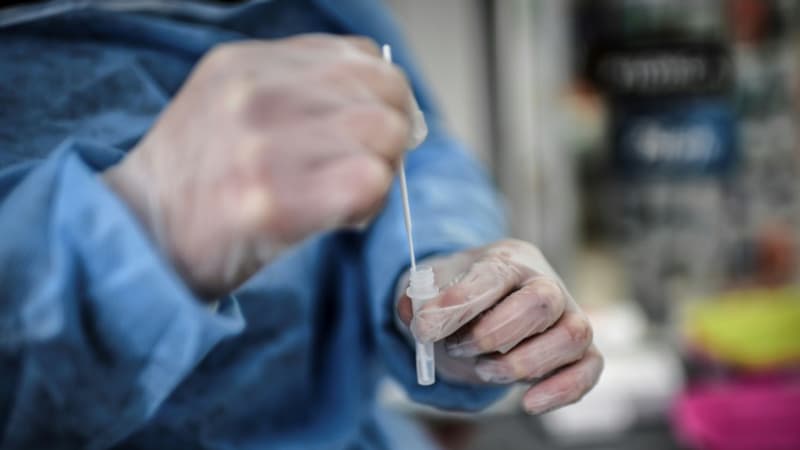Is Covid-19 a spoilsport again? Three weeks before Christmas, and while the cold season favors the spread of viruses of all kinds, several traffic lights are orange.
In its newsletter on acute respiratory infections, published this Wednesday, December 6, Public Health France (SPF) notes a “continuous increase in most indicators.”
One in four tests positive
In wastewater, samples taken at the country’s twelve stations reveal “a strong increase (+24%) in the detection of SARS-CoV-2” the week of November 27 compared to the previous week, which attests “the active circulation of the virus in France”
In the city, Santé Publique France notes that 6.4% of SOS Medicos actions last week concerned suspected cases of Covid-19, compared to 4.7% the previous week. An increase that is confirmed in most age groups, and particularly among those aged 65 years.
In the hospital setting, the number of visits to the emergency room due to suspected Covid-19 is also increasing, but only represents 1.2% of procedures (+0.2 points).
Finally, in medical biology laboratories, the test positivity rate is 27.1%. A figure that jumped 2.8 points compared to the previous week.
New variant
According to specialists, a new variant could be responsible for this (mild) epidemic resurgence. This is the JN.1, a descendant of the BA.2.86 variant and belonging to the large family of the Omicron variant.
“This lineage is replacing all the others, slowly but sustainably. We have 50% of the viruses detected in France that belong to this lineage,” Bruno Lina, professor of virology at the University Hospital of Lyon, tells BFMTV.
This variant “does not present any particular characteristics” compared to other Omicron viruses but “it is most likely responsible for the increase in cases,” continues Bruno Lina.
A “big wave” is not expected
Although an increase in cases is expected, “we do not expect a big wave, there is no panic,” says Dr. Jean-Pierre Thierry, health advisor for BFMTV.
However, “attention must be paid to the contribution of this virus to the increase in the number of diseases that will justify hospitalizations and cause the death of vulnerable people,” the doctor emphasizes.
In fact, Covid-19 is just one of the many respiratory diseases currently seen in the country. The coronavirus ranks second among the most detected viruses in France, behind rhinoviruses (responsible for severe colds) and ahead of RSV (the bronchiolitis virus).
Regarding the flu, Public Health France announced on Wednesday that Burgundy-France-Comté, Centre-Loire Valley, Grand Est and Guyana were moving into the pre-epidemic phase.
Importance of vaccination
To prevent Covid cases from overloading our hospitals, doctors remind the importance of vaccination, especially for the most vulnerable. Among people aged 65 and over, the vaccination rate remains low: less than a quarter of French people in this age group are up to date, according to Santé Publique France.
However, the vaccine remains as effective as ever, according to Bruno Lina. “The vaccine has been modified to adapt to the conditions,” explains the professor.
“Vaccination protects collectively and individually by reducing the risk of infection and relieving symptoms if you are infected,” he recalls.
Barrier gestures, again and again
Health authorities also highlight the importance of barrier gestures, effective against Covid and other viruses and bacteria.
“When you are sick, you avoid getting close to vulnerable people and, if possible, wear a surgical mask. Hand hygiene is also always very useful,” recommends Bruno Lina.
Viruses emitted by saliva droplets can remain suspended in the air for several hours, ventilation is also a gesture to adopt, even if it is cold outside. “It is enough to open the window for even five minutes to intensely renew the indoor air,” insists Bruno Lina.
Source: BFM TV


